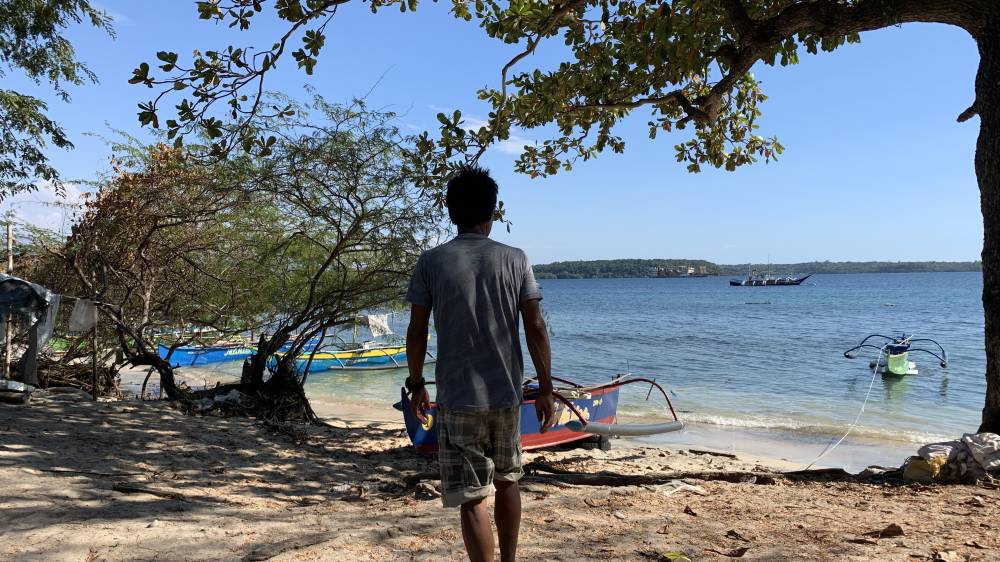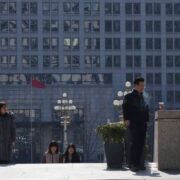Zambales fishers, farmers call for reforms ahead of Sona

SAN ANTONIO, ZAMBALES —Fisherfolk and farmers in this province are calling for support and reforms in the agriculture sector ahead of the third State of the Nation Address (Sona) of President Marcos on Monday.
Leonardo Cuaresma, president of the New Masinloc Fishermen Association based in Masinloc town, said in a phone interview on Saturday that they wanted to hear the government’s concrete plan for the fisheries sector, such as sustainable or alternative livelihood projects for fisherfolk.
Cuaresma said that it is about time to create a fisheries sector that is specifically funded for these projects and not always dependent on the Department of Agriculture.
“If we have a Department of Fisheries and the Bureau of Fisheries is no longer just under the Department of Agriculture, I think it will be better for our fishermen because there is someone in charge of it,” he said.
He added: “Compared to the previous administration that wasted our victory in the arbitral ruling and let foreigners rule our fisheries, now, we have seen that they are fighting for our sovereignty so our call is to pay attention [on] what to do with fishermen like us who continue to be perverted by what is happening,” he said.
Cuaresma was referring to the ruling of the United Nations’ Permanent Court of Arbitration at The Hague in 2016 that rejected China’s so-called nine dash claim over the whole of South China Sea and upheld the Philippine’s right over its territorial waters in the West Philippine Sea (WPS).

China has ignored the ruling and has instead kept Filipino fishers off key areas like the Panatag (Scarborough) Shoal, which is known to Zambales fishers as Bajo de Masinloc, their traditional fishing ground.
‘Baseless fishing ban’
Fisherfolk, along with various peasant organizations such as the Kilusang Magbubukid ng Pilipinas, Unyon ng mga Manggagawa sa Agrikultura, Amihan National Federation of Peasant Women and Anakpawis were set to deliver a “State of the Peasant Address” to tackle the situation of the rural sectors in the country ahead of the President’s Sona.
Fishers group Pamalakaya said that fisherfolk in this province have been losing around 60 percent of their income per fishing trip of five to six days since Beijing imposed its four-month fishing ban that covers the country’s territorial waters.
“It has been almost a month since China declared its baseless fishing ban, but we have yet to feel the support of the [Marcos] administration in the livelihood of fishermen,” said Ronnel Arambulo, Pamalakaya vice chair, in a phone interview on Wednesday.
During a consultation held this month with the “mother boat” operators in Subic town, Pamalakaya learned that the income of fisherfolk has decreased from P10,000 to less than P4,000 every fishing expedition near Panatag Shoal since China’s unilateral fishing moratorium started in May.
Multi-sectoral protest
The fishers’ group said that it is also coordinating with other fisherfolk operators and associations in Pangasinan and La Union provinces to look into their situation amid the fishing ban.
Fisherfolk and residents in this province planned to join the multisectoral protest in Quezon City on Monday to denounce the Marcos administration’s “neglect” in peacefully asserting on China its sovereign rights over WPS, and for “allowing” foreign military interventions as its solution to the tensions.
“The distance of Manila is not an obstacle for us to not participate in the big protest scheduled and to express the true situation of the small fishermen in our province,” said Joey Marabe, Pamalakaya-Zambales provincial coordinator.
Marabe, in a separate phone interview on Wednesday, said that “the interference of both China and the US is a big threat to Filipino fishermen and its ally, Japan, in our territorial fisheries.”“Instead of making the arbitral ruling a basis to promote peaceful dialogue, President [Marcos’] solution is to allow foreign military intervention in the tension in the West Philippine Sea,” he said.
Rudy Bonostro, a farmer in Masinloc and member of Samahang Magsasaka at Mangingisda Barangay Taltal, said the government should fulfill its promise of agrarian reform.
Agrarian reform
Some 73 farmers including Bonostro could lose their 32-hectare farmland in Barangay Taltal, as only 23 ha had been distributed to farmers out of the 55-ha farmland covered by the agrarian reform program.
“Since 1984, we have been harvesting the land until now that our ancestors have died but someone came who said they have bought this land. All our crops were bulldozed and damaged,” said Bonostro in a phone interview on Saturday.
“The call of the farmers is real agrarian reform to be distributed and it should not have been covered by the land reform program but will still be withdrawn. We hope that they will fix the law itself and the implementation of the government,” Arni Gallardo, spokesperson of Alyansa ng mga Magbubukid sa Central Luzon, said in a phone interview on Saturday.
He stressed that what was happening in Barangay Taltal and other parts of the region only showed that the administration’s land reform program “is fake.”

















